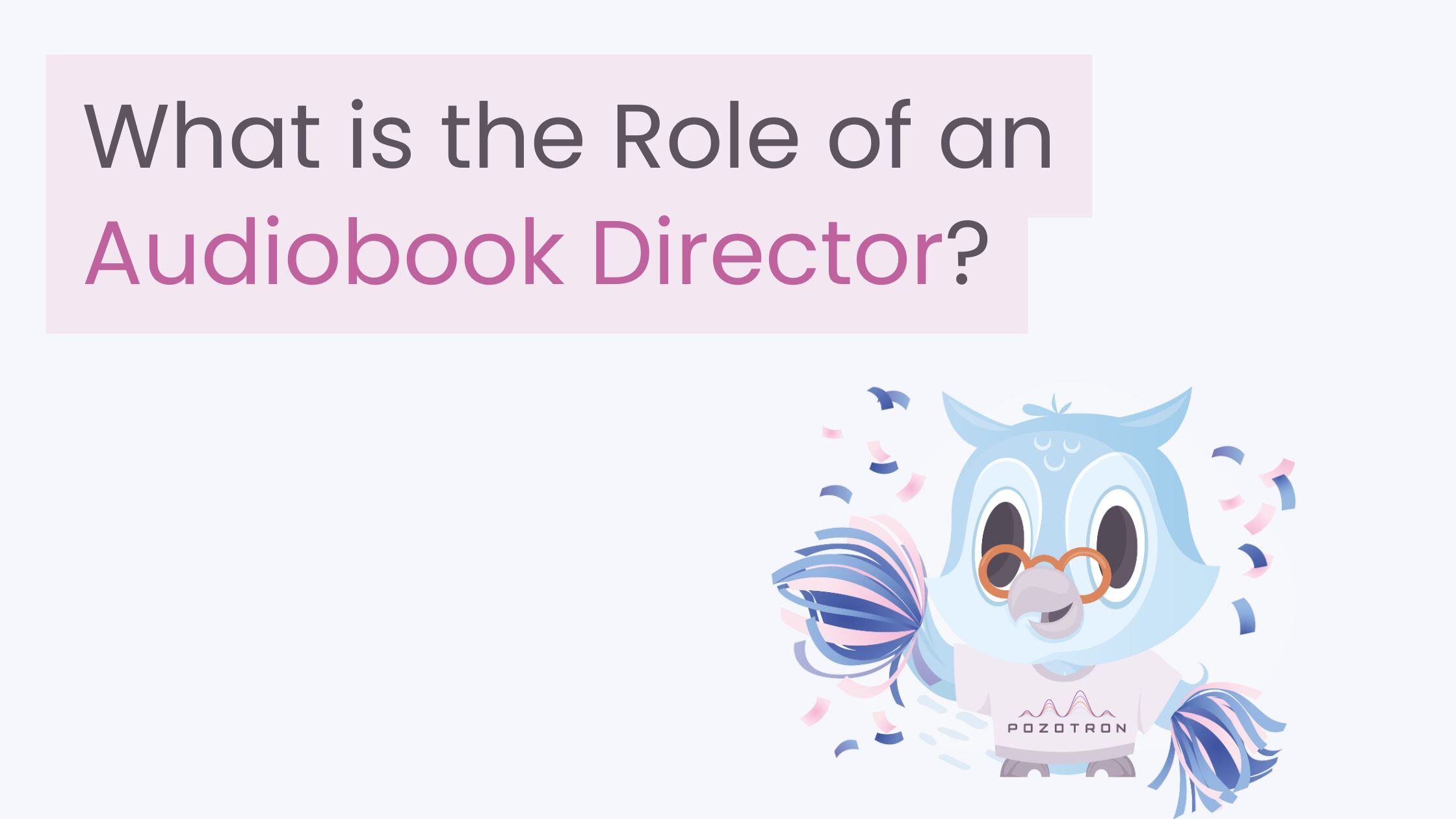What is the Role of an Audiobook Director?

Though audiobook narrators are often in the spotlight, audiobook directors can play a critical role in the final product.
Directors can be considered creative guides that ensure the story's delivery aligns with the author's vision and resonates with listeners.
The Role of an Audiobook Director
Audiobook directors oversee the artistic and performance aspects of the audiobook, ensuring the creative elements align with the text. They work hand in hand with the narrator to deliver an engaging, accurate, and consistent performance.
While their role is rooted in creativity, it's also very collaborative, requiring strong communication and a deep understanding of storytelling. Audiobook directors often act as a bridge between the author, publisher, and narrator, ensuring everyone's expectations align.
Key Responsibilities of an Audiobook Director
1. Interpreting the Author's Vision- Directors also read and prepare the manuscript to understand the author's tone, themes, and characters.
- They listen during recording to make sure that the narrator's performance reflects the essence of the story.
- The director may coach the narrator on pacing, tone, and characters. If a creative direction is needed, they strive to give actionable feedback.
- While the narrator is the artist bringing the book to life, the director can act as a creative guide to help bring out the author’s intent.
- Character voices and accents should remain consistent throughout the audiobook, especially in a series. Directors help with this continuity, usually across multiple recording sessions.
- They may also listen for any errors, such as missed phrases or mispronounced words, and mark the manuscript for the post-production team. On projects with a director, they act as a live proofer as well.
- Directors can provide solutions if narrators encounter challenging text, such as unclear dialogue or difficult pronunciations.
- They may suggest alternative choices or conduct quick research to clarify ambiguities.
- Directors help maintain a productive pace in the recording studio, ensuring the narrator stays focused while avoiding burnout.
- They track progress, manage retakes, and coordinate with editors and publishers. At the end of the session, they deliver a marked-up script and raw audio to the post-production team.
Skills and Qualities of a Great Audiobook Director
Audiobook directing requires a blend of skills that combine artistic sensibility and technical know-how to create a great end product.
Here are some qualities that make for a great director:
- Excellent Communication: Clear, constructive feedback is essential for guiding narrators without putting them down or disrupting their creative process.
- Storytelling Knowledge: A good director understands how to bring narratives to life through pacing and emotional nuance.
- Attention to Detail: Voice inconsistencies or mispronounced words can break a listener's immersion in the audiobook, so directors try to catch these issues in the moment.
- Problem-Solving Ability: Directors need to think quickly on their feet and address challenges as they arise.
- Collaboration Skills: Directors must communicate with the entire team, from narrator to publisher and post-production. They must balance these different individuals and foster a feeling of respect and creativity.
How Directors Collaborate with Narrators
A good director knows how to bring out the best in the narrator's performance while respecting their creative input.
Ideally, the director discusses the manuscript with the narrator before recording to provide insights into character arcs, emotional beats, and tonal shifts. Then, during the recording session, they offer real-time, actionable feedback on pronunciation, pacing, and delivery and help the process stay on track.
Why Audiobook Directors Are Helpful
While some audiobook projects—especially indie productions—may not involve directors, their presence can significantly enhance the final product. Even if you are working on an indie project, there are many directors you can hire to help you through the process.
Some reasons you may want to consider hiring a director, even on indie books, are:
- High-Stakes Projects: Big-budget productions, high-profile authors, or highly anticipated releases can benefit from the creative oversight of a director.
- Complex Narratives: Books with intricate plots or large casts of characters may require extra guidance to ensure consistency and clarity.
- New Narrators: For narrators just starting, working with a director can provide valuable coaching and help build performance confidence.
Some narrators will secure a director for the first hour of the audiobook to start them off successfully.
Using Pozotron to Enhance the Director's Role
Directors can benefit from tools like Pozotron to streamline work and improve collaboration with narrators and editors. For example:
- Script Prep: Directors can use Pozotron's script prep tools to identify tricky pronunciations and create a character list in advance.
- Pronunciation Guides: Pozotron simplifies the process of ensuring consistent and accurate pronunciation across the audiobook.
- Collaboration Features: Pozotron allows directors to share details with narrators and editors, creating a seamless workflow.
Audiobook directors are like the glue that holds the production process together, ensuring the narrator's performance meets the author's vision and listener expectations.
.png?width=1200&height=628&name=Poz_google_ad_pic_transparent%20(2).png)